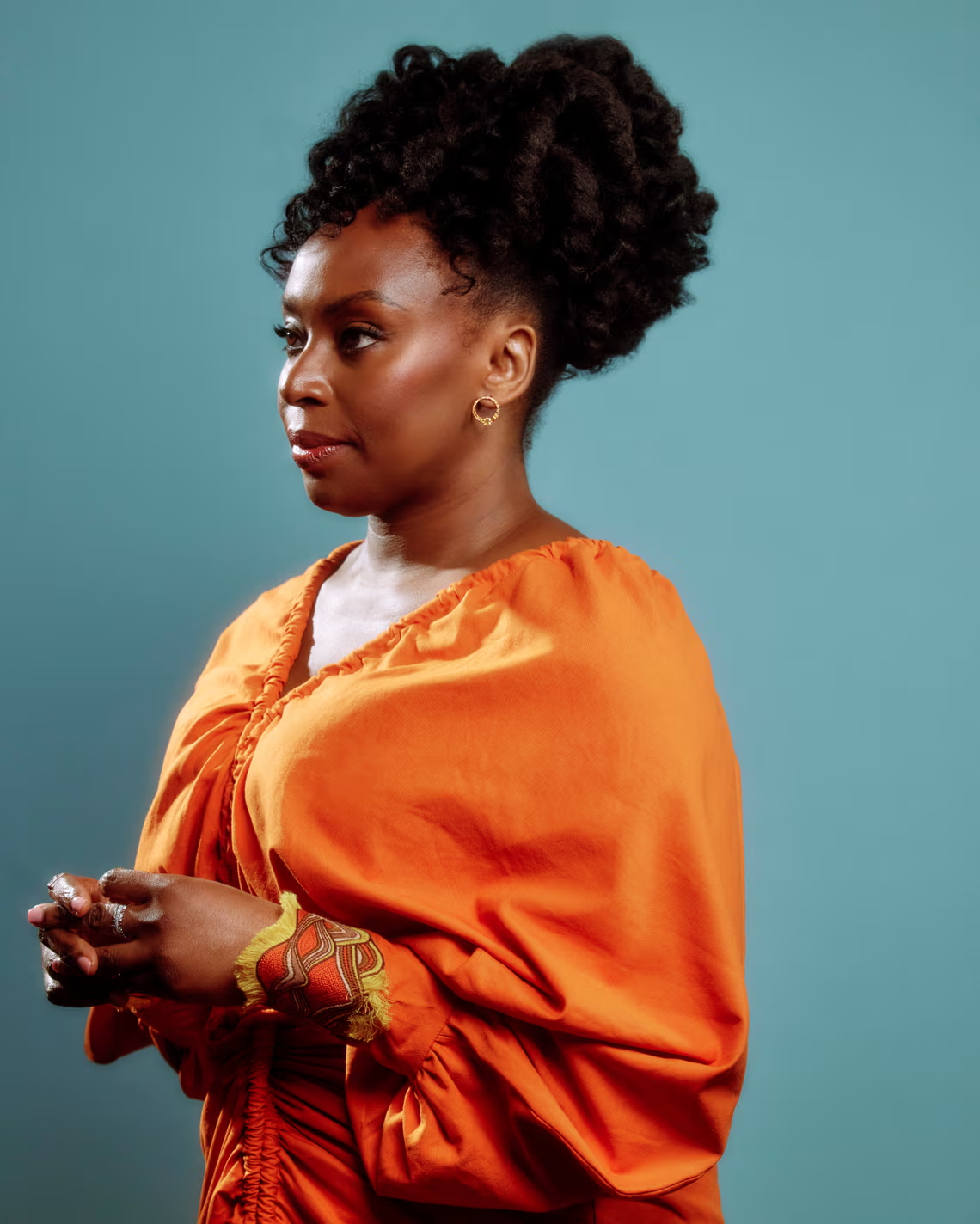After Chimamanda Adichie, maybe bearing kids through surrogacy becomes no problem for Nigerian women?
Appearing alongside other guests on the #WithChude talk show which featured a live debut on Sunday 27 April, the 47-year-old Adichie shared a deep secret that seemed a great price to pay for the sake of advocacy, but she had not seen another way.
![Chimamanda Ngozi Adichie explored the proper context to relate to the women struggling with bearing children, no matter how hard they try. [Instagram - chudeity]](https://i0.wp.com/meiza.ng/wp-content/uploads/2025/05/Chimamanda-Ngozi-Adichie-explored-the-proper-context-to-relate-to-the-women-struggling-with-bearing-children-no-matter-how-hard-they-try.-Instagram-chudeity-e1746183716210.jpg?fit=570%2C702&ssl=1)
The Nigerian author Chimamanda Ngozi Adichie has mostly lived away from her home country, Nigeria, ever since the early 2000s gave her writing success, but she has never truly taken her eyes off home, where issues surrounding infertility would usually blow hot air, so now is to follow her journey.
Even though this Dream Count (2025) writer has been living in the United States of America for the most part, she can still recognise that life, for women she left behind, remains an uphill task, particularly those struggling with bearing children.
These women living in Nigeria, if they had dared to open up, probably wouldn’t have had it as easy as she did when she opted for the route of surrogacy before welcoming twin boys in April 2024.
For the moment, these twins brighten her world. Not that Adichie isn’t equally in love with her daughter, whom she delivered in 2016, it is perhaps for the thrill of motherhood being renewed, and the sheer fact that she had recently overcome a bout with writer’s block, which developed after giving birth to her first newborn nine years ago.
ALSO READ: Remember this Olu Jacobs from the British late 60s drama The Crezz is still alive
Her new novel, Dream Count, published on 7 March 2025, came out exactly 11 months after the tweenies were born. These experiences mean a rebirth on their own, and the author thinks that the Nigerian society probably ought to re-enact its sort of renewed thinking about the way women battling infertility issues are appreciated in this bubble.
Appearing alongside other guests on the #WithChude talk show which featured a live debut on Sunday 27 April, the 47-year-old Adichie shared a deep secret that seemed a great price to pay for the sake of advocacy, but she had not seen another way.
![Chude Jideonwo, a podcast host nowadays, gathered Chimamanda Adichie, the actress Funke Akindele and rapper Falz to make a rich cocktail of notable people sharing their life experiences. [Instagram - chudeity]](https://i0.wp.com/meiza.ng/wp-content/uploads/2025/05/Chude-Jideonwo-a-podcast-host-nowadays-gathered-Chimamanda-Adichie-the-actress-Funke-Akindele-and-rapper-Falz-to-make-a-rich-cocktail-of-notable-people-sharing-their-life-experiences.-Instagram-chudeity.jpg?resize=708%2C882)
I felt that there were many women who would then be pressured by people saying, ‘look, Chimamanda is 47 and she had kids at that age, what about you?’ The audience had heard her imagining a confrontation, which women somewhere in Nigeria would have found rather too common.
Worthy sacrifice
Getting hitched to a medical doctor, Ivara Esege, reportedly in 2009, possibly would have raised Adichie’s awareness about problems surrounding women’s reproductive health, and it is that part that deals with criticising her gender for their conception challenges that she says needs to stop
Chimamanda Adichie said that there is so much shame around issues of fertility, and I just think it’s too much of a burden for women. Sadly, she has noticed that women are ashamed when they have fibroids, women are ashamed when they have issues getting pregnant, and I don’t believe in that sort of shame.
It was all about weighing options before making all the revelations now flooding the Nigerian media space.
Back in the middle of February, she had admitted in an interview with the Guardian UK how much she wants to keep personal business from Nigerians because the latter tended to pry, yet over two months after the writer found herself breaking ranks from her own rule.
My boys are so precious to me, and I hated that anything about them would become politicised. So, on the one hand, I thought, ‘I wish I hadn’t talked about it’, but on the other hand, there is no way I am going to lie about the process of birthing them.
I am hoping that if anything good comes out of this, it would be that more women are less ashamed of talking about reaching motherhood through non-traditional means. Our society is so judgmental, and I don’t think that is good for anybody.
After writer’s block
Dream Count, a fiction of course, marks Chimamanda Adichie’s fourth novel. It came 12 years since her last work following that direction of storytelling. Here, the writer focuses on four different women navigating through pandemic solitude while still finding themselves.
A review from a United States publisher observed Dream Count has each page suffused with empathy, although getting here wasn’t short of frightening moments, and Adichie questions her ability to put together a worthy piece. This was one of the talking points her February interview with Guardian UK revealed.

I didn’t want to leave such a long gap between novels. When I got pregnant [with her daughter], something just happened. I had several years in which I was almost existentially frightened that I wouldn’t write again. It was unbearable.
When I got pregnant, something happened. I was almost entirely frightened that I wouldn’t write again.
It was unbearable. There are expressions like ‘writer’s block’ I don’t like to use because I’m superstitious. But I had many years in which I felt cast out from my creative self, cast out from the part of me that imagines and creates; I just could not reach it. I could write nonfiction, and that was fine. But that’s not what my heart wanted.

Ayodelé is a Lagos-based journalist and the Content and Editorial Coordinator at Meiza. All around the megacity, I am steering diverse lifestyle magazine audiences with ingenious hacks and insights that spur fast, informed decisions in their busy lives.





